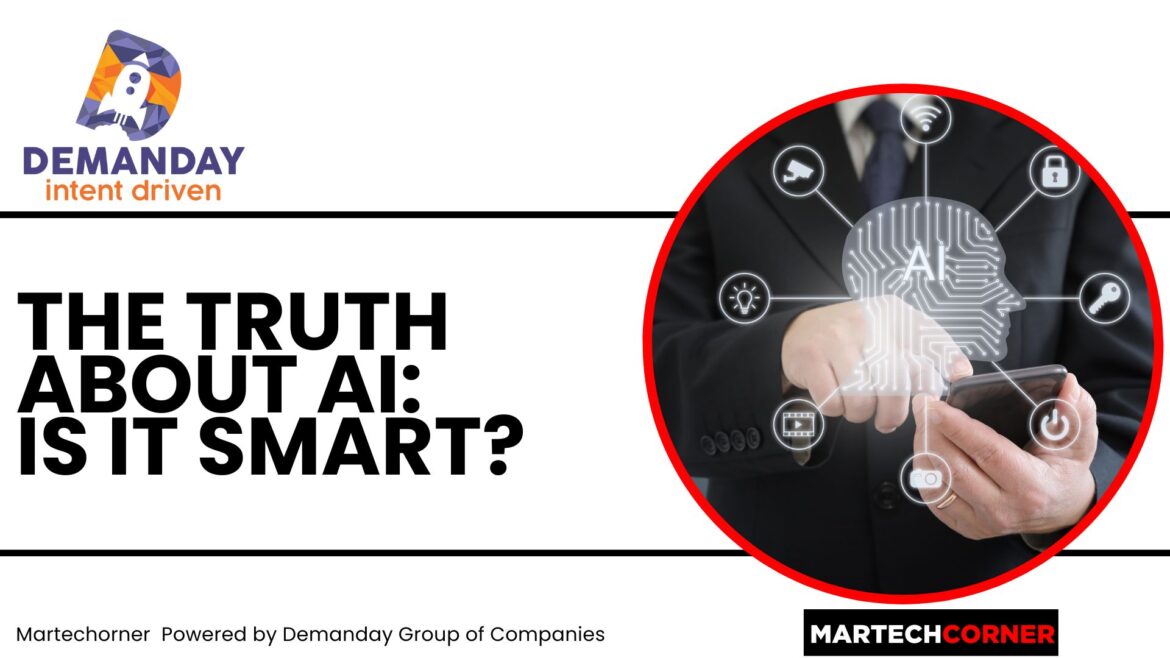Artificial intelligence (AI) seems like the genius behind every digital innovation. But is AI really as smart as it seems? If you’ve ever wondered whether AI has genuine intelligence or if it’s just clever programming, you’re not alone. Let’s explore the reality behind AI and whether it’s as “smart” as we’re led to believe.
1. What Does “Smart” Mean for AI?
AI’s intelligence is often misunderstood. It’s not about creativity or emotions; it’s about processing huge amounts of data quickly and accurately. AI excels in tasks like pattern recognition and predictions, but does that make it truly intelligent?
- Stat to Know: According to IBM, AI systems process data 10,000 times faster than the human brain, but they lack emotional understanding and reasoning.
- What This Means for You: AI may seem smart because of its speed and efficiency, but it’s still limited to the tasks it’s trained for. While it can beat you in chess, it won’t understand why you love the game.
2. AI Learns, But It Doesn’t Understand
Algorithms used in AI “learn” from data, however, this process differs greatly from human learning. AI doesn’t grasp concepts or emotions—it just identifies patterns and makes predictions based on the data it’s given.
- Eye-Opening Fact: A 2023 report by OpenAI revealed that even the most advanced AI models like GPT-4 still don’t truly understand context, despite generating human-like text.
- For You: AI can seem smart because it mirrors human language or behavior, but it doesn’t understand meaning. It’s important to remember that AI is working with data, not true knowledge.
3. Why AI Can Outsmart Us in Some Tasks
While AI isn’t “intelligent” in the way humans are, it can outperform us in certain tasks. AI systems can process massive amounts of information, detect patterns humans might miss, and provide solutions faster than any person ever could.
- Stat to Consider: AI can analyze over 10,000 medical scans in the time it takes a human radiologist to review one, according to a study by Stanford University in 2022.
- How It Impacts You: In areas like healthcare, finance, and logistics, AI is an incredibly powerful tool. But it’s not because it’s smarter—it’s simply able to handle more data, more quickly.
4. The Role of Human Intelligence in AI’s Success
Behind every smart AI tool is a team of human developers, data scientists, and engineers. AI may be good at performing certain tasks, but without human guidance, it wouldn’t function.
- Shocking Stat: According to Gartner, 75% of companies that have adopted AI still require human oversight to ensure accuracy and ethical decisions.
- What This Means for You: While AI tools can seem advanced, they still rely heavily on human input. It’s your creativity, problem-solving skills, and understanding of context that give AI real value.
5. The Limitations of AI Intelligence
AI can’t do everything—its intelligence is limited to what it’s trained for. When faced with unfamiliar tasks, AI systems struggle or fail. Unlike humans, who can adapt, AI needs retraining and new data to learn something new.
- Important Stat: A study by MIT in 2023 found that 62% of AI systems fail to perform well in environments they weren’t specifically trained for.
- For You: While AI is powerful within its domain, it has limitations. For tasks requiring creativity, empathy, or adaptability, humans are still far superior.
6. AI’s Impact on Your Future Job
AI is reshaping industries, but that doesn’t mean it’s replacing human intelligence. Instead, AI is augmenting jobs, helping you work more efficiently by taking over repetitive tasks while leaving the more strategic and creative work to you.
- Interesting Fact: According to the World Economic Forum, AI will create 97 million new jobs by 2025, many of which will require high levels of human creativity and critical thinking.
- What This Means for You: AI is a tool, not a replacement. By combining your skills with AI, you can leverage its power to enhance your work and create more value in your role.
Conclusion: Is AI Smart?
So, is AI really as smart as it seems? The truth is, that AI’s intelligence is impressive but highly specialized. It processes data, identifies patterns, and solves problems faster than we can—but it doesn’t understand or think like a human. It’s essential to appreciate AI for what it is: a tool that enhances our abilities but still relies on human intelligence to truly thrive.


